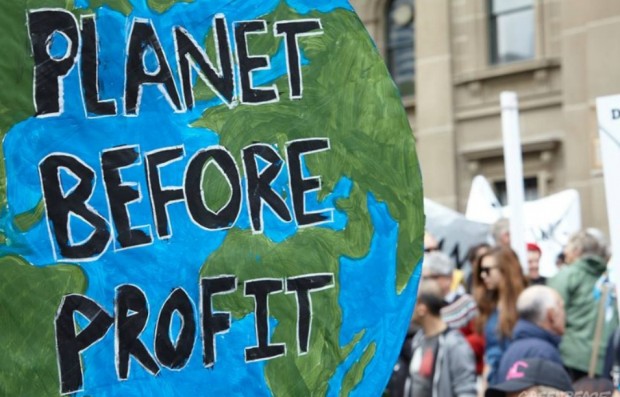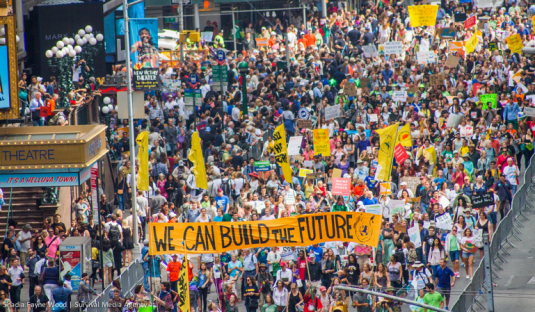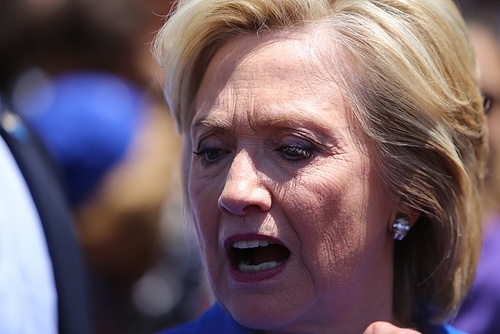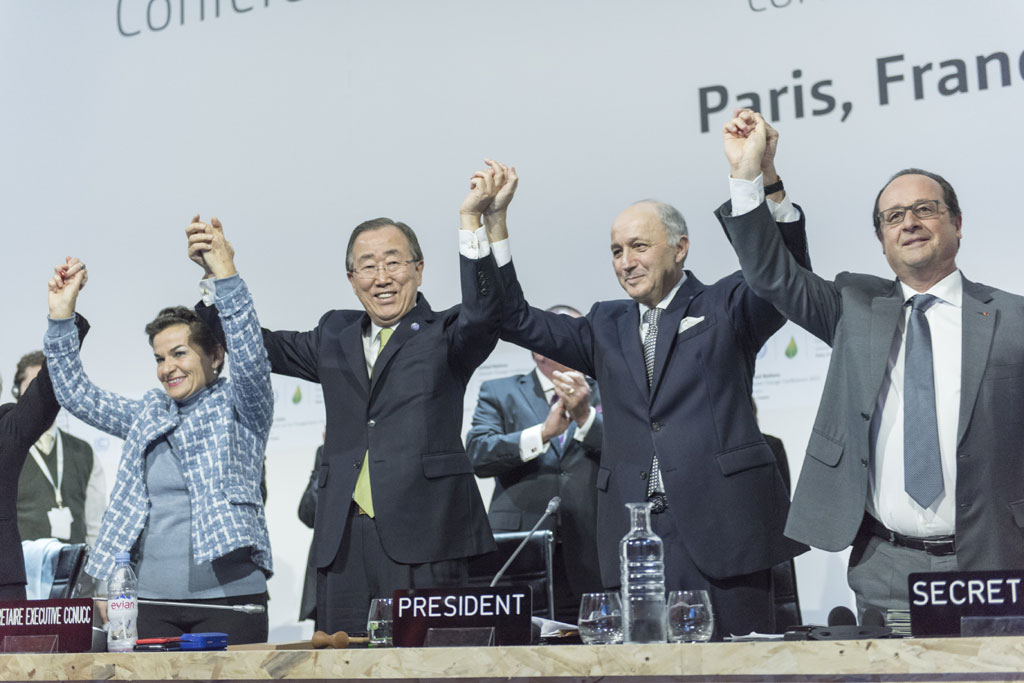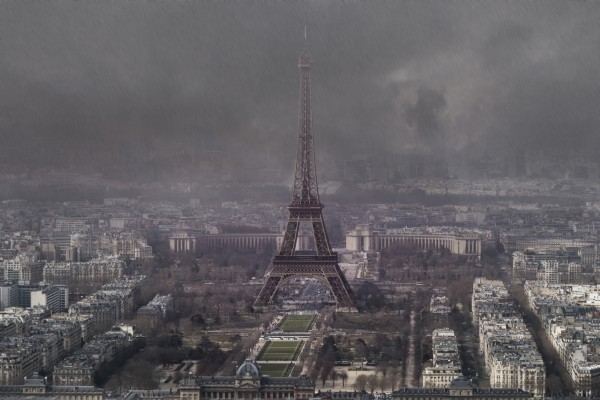Naomi Klein is a journalist and author who has written for a number of publications about environmentalism, globalization, the wars in Iraq, and the impact of unrestrained neoliberal economics. She has also written several books on the anti-corporate movement (and in addition to print, has made documentary films on the subject with her husband, Avi Lewis). Her critiques of free market fundamentalism earned her the £50,000 (about $76,000) Warwick Prize for Writing and a place on the New York Times bestseller list.
In this interview, Klein tells the Bulletin’s Dan Drollette about her latest non-fiction book, This Changes Everything: Capitalism vs the Climate, published by Simon & Schuster in 2014. The book takes no prisoners, pointing at weak government efforts to address climate change; environmental groups that have compromised with industry on too many issues; what she considers to be pie-in-the-sky “techno-fixes” such as carbon sequestering; conservatives who consistently deny climate change is even happening; and corporations that Klein thinks are seeking to earn a profit by scuttling efforts to deal with the crisis.
Her solution is to rebuild society along more equitable and local lines: raising food locally; making big investments in renewable energy; and ending government subsidies for the fossil fuel industry. She offers the dramatic expansion of renewable energy use in Germany and the Scandinavian countries as examples of government and citizens coming together to forge change and calls for a broad-based citizen’s movement to do the same in North America—harkening back as far as the Abolitionist movement for an example of such change. She also talks about the recent upheaval in national politics in her native Canada and how it may affect the upcoming climate change talks in Paris.
BAS: With the recent election of Justin Trudeau in the news—a politician who said he is personally going to head Canada’s delegation to the Paris talks—and with what seems to be more effort from the Obama administration, do you think that things are starting to look more serious this time around when it comes to climate talks?
Klein: I think that things are looking better than at the end of the Copenhagen summit—but you know that people were pretty optimistic before Copenhagen started. And I think the most significant shift is the fact that China and India are coming to the table with some really impressive targets.
And it’s going to be harder to play that sort of Northern/Southern hemisphere blame game—which has been the sort of fault line that has stood in the way of progress.
And I think it is significant that some of the most belligerent actors will not be present, in the form of [former Australian Prime Minister] Tony Abbott or [former Canadian Prime Minister] Stephen Harper. But I wouldn’t get overly excited about what a Canadian, Trudeau-led delegation is going to bring to the table. Trudeau was very vague on the election trail; he very pointedly did not make pledges about emissions-reduction targets. I think he said explicitly that they don’t have time to change the course that Harper has set the country on, and Trudeau is going to be coming to Paris with the same targets that the Harper administration had put forward—which are pathetic.
But the hope is that maybe we’ll be able to push Trudeau a little bit further.
However, even though there have been significant signs of progress, if every government made good on the pledges that they have already made—and we know what the major economies are bringing to the table in Paris—that still would not put us on the course to keeping things to a 2-degree Celsius temperature rise. It would put us on a course closer to a 3-degree temperature rise.
And that’s assuming that the targets are enforced. Which is assuming a lot, because we know that they will not be genuinely binding—there’s no penalties attached. If there aren’t serious penalties attached to failing to meet agreed-upon targets from the agreement, then the agreement is effectively already broken. Governments don’t take them seriously, and fossil fuel companies don’t take them seriously. We saw that after Kyoto, where Canada bailed out after agreeing to it.
BAS: One of the shocking things to read in your book was that all these trade agreements essentially say that free trade trumps everything else, including environmental concerns. Economic growth always comes first; climate second.
Klein: And we’re seeing a flurry of these new trade deals, with the United States and China, and with Europe and the United States, to name just a few of the larger partnerships. There is this fundamental contradiction between what governments are negotiating in trade summits and what they’re negotiating at climate summits. There’s seemingly very little desire to reconcile the two.
It’s like they’re on these two parallel tracks and don’t communicate with each other.
Twenty years ago the trade lawyers could plead ignorance and say that they weren’t really up on climate change. But that’s not true anymore. It’s really a willful compartmentalization, because it’s hard to reconcile that kind of trade with a radical carbon reduction agenda.
BAS: The book laid out a case for the large environmental groups—“Big Green”—being in bed with Big Oil. The Environmental Defense Fund came off particularly badly.
Klein: Even the Sierra Club had a really ugly chapter, in which they were taking many millions from a natural gas company which had a very clear financial interest in shutting down coal plants because it was creating a market for them.
And frankly I think the same is true for Michael Bloomberg—who continues to be a major funder for the Sierra Club—because Bloomberg as a businessman is massively invested in natural gas. He has a dedicated fund for his $33 billion worth of wealth that specializes in oil and gas. And he continues to be a vocal advocate in favor of fracking in New York State.
What do I take away from this? I love the Sierra Club, I have friends who work there, they do fantastic work. But I frankly don’t see a huge difference between the conflict of interest with Michael Bloomberg and some of the other conflicts of interest I mentioned in the book.
That said, I think the Sierra Club has definitely gotten on the right side of the fracking fight. Unlike the Environmental Defense Fund, which continues to try to broker these so-called “best practices” for fracking at a time when the people affected by fracking are being very clear that they want outright bans.
What’s interesting is what has been happening in places like New York State, where local green organizations have been challenging the relevancy of some of these Big Green groups that started that whole “split the difference” middle ground approach—and Big Green is to the right of Cuomo, which is not a place where you want to be. There’s been the emergence of a harder-core, grass-roots movement that I call ‘Blockadia’—and because it is growing, and so strong, and resonating with so many people, these new movements are winning huge victories, like the ban on fracking in New York State. And the grassroots is making these Big Green groups irrelevant.
BAS: You have faith in the back to basics, grass-roots, local, environmentalism and what it can do? You believe in the power of Blockadia?
Klein: It’s not that I have faith in project-by-project, place-based resistance to get emissions down to the level that we need to get them down to. What I think is that this movement has put up some very significant barriers to investment in things like fossil fuel extraction—combined with the drop in oil and gas prices—so we are seeing some very significant impacts. For instance, Shell recently announced that they were going to take a $2 billion write-down, basically saying goodbye to $2 billion in the tar sands on a project that they had already done.
And they explicitly said it was due to a combination of the economics and the lack of pipeline capacity. The price of oil is down so much that it is not as profitable to extract these very, very heavy oils that require so much costly refining.
And the pipelines, such as Keystone XL, Kinder Morgan, Northern Gateway, and Energy East, have been opposed so strongly by members of the public. There’s no point in digging it up if they can’t get it out.
I’m certain that Shell’s announcement is because of this combination of low prices and local movements.
And included in these local movements are the indigenous movements, which have the added power of their legal rights as recognized by the Canadian constitution, which says that these projects can’t go forward without consulting the indigenous people. And according to the the UN Declaration of Rights for Indigenous People, these projects must have the indigenous peoples’ consent.
Our courts in Canada have affirmed these rights again and again. So to investors, the future is looking uncertain enough that they’re starting to cancel.
That said, I don’t think this is enough. We need to pivot from these sort of project-by-project victories, where carbon is being kept in the ground, to policy victories at the national and international levels.
We need an international moratorium on our fixed drilling. This would be a great time to do it, when you have companies like Shell pulling out.
But Obama is absolutely right when he says that he let Shell go up there because someone is going to drill in the Arctic, and it may as well be them. However, that doesn’t have to be the end of the story; Obama could be leading all Arctic nations to have a drilling moratorium—that’s what we need.
So, I am not in any way saying that Blockadia is enough. I am saying that it has revived the cause, and kept a lot of carbon in the ground. But it’s not enough; only policy can do that.
BAS: You don’t really think much of cap-and-trade, or market-based solutions, or the kind of thing that the book characterizes as Davos-style, feel-good, celebrity billionaire pro-business environmentalism. You really emphasize the role of regulations, of bans, of policy-oriented solutions?
Klein: I think when it comes to stopping harmful activities, yes. We have to get back to saying “no” to big corporations, and taking some very strong actions, including prosecution of companies like Exxon, which we now know were doing their own climate research in the 1970s—and then proceeded to fund the climate change denial movement.
I think we need to take a look at the model of the legislation surrounding the tobacco companies, in terms of taking more of the profits from the polluters to pay for the transition.
I’m a big fan of bans, of moratoriums, of clear and unyielding caps on how much carbon you can take out of the ground. We have a carbon budget, and we need to allocate it fairly. I think it’s possible to do this, but we just have not tried. We have a body that looks at oil supplies—OPEC—but they don’t look at it from a climate perspective. It can be done, but they’re just looking at it from a financial perspective.
I’m not suggesting that we should leave this up to OPEC, but that this is not as hard as people make it out to be.
The problem is the crippling ideological grip of neoliberalism since Reagan, which makes it intellectually heretical to suggest the top-down, regulatory sort of approach to keeping planet-destabilizing carbon in the ground.
But having said that, I do think that all kinds of incentives, including market-based ones, can play a huge part, in terms of rolling out renewables. We’ve seen some really great examples of how that can work, in Germany and elsewhere, where they’ve used a feed-in tariffs program that has led to the proliferation of all sorts of different business models for owning renewable energy projects; everything from small businesses to state-run utilities to hundreds of new energy cooperatives. The price of solar has gone down by 95 percent, and this has all happened because of a combination of a huge amount of public investment in R&D and the market. And we all owe a huge debt to Germany for making the public investments that have helped to drive the price down.
BAS: So you’ve never been anti-market?
Klein: I think that what I’ve been saying gets misinterpreted; I’ve never made the argument that there’s no role for markets. But I do argue that leaving it all to the market is madness. We can’t just say, “Oh, the price of renewables is going down so we can relax; the market is doing its work of creative destruction, and the use of fossil fuels will go the way of the dodo.”
The market can do a lot, but it just can’t get us off of fossil fuels by mid-century—or even the end of the century. All by itself, it cannot get us to zero emissions. It just can’t do it, because the fossil fuel companies are so strong now. They’ve had so long to accumulate economic and political power, which translates into the power to slow us down. That’s what we saw with Exxon, they caused us to waste decades. And they’ll waste decades more if we let them.
BAS: We’ve talked about oil companies. What about the actual oil-producing states themselves? They all seem to be making the right noises about reducing domestic consumption, increasing conservation, increasing energy efficiency, and investing in renewables for when the oil runs out. Or do you think that’s all hot air?
Klein: Well, I cannot speak on their behalf, nor do I know what’s in the minds of the rulers of the petro-states.
But there’s no doubt that there have been massive investments in renewables in petro states—it’s a part of the world that is so climate-impacted, there’s tremendous water scarcity there in the best of times. I think there’s all sorts of indications that the petro-states understand their vulnerability to climate change, because a lot of them are involved in land-grabbing in Africa because they’re worried about food supply.
They know they’re vulnerable to climate change; I’m sure you saw that horrifying paper in Nature—the peer-reviewed journal—which said that parts of the Middle East are going to become uninhabitable for humanity.
And things are getting bad there, in terms of climate.
I was in Iraq after the war to do some reporting, and I’ve never been hotter than I was in Baghdad. And the people there were telling me that the water cooling systems they have on the roofs—sort of like our air conditioners but with a different design—are no longer able to handle the heat. It’s gotten so much hotter that their air conditioners don’t work.
This is why the book focuses on the need for responses to climate change that also are responses to inequality. There’s this “disaster apartheid,” where, if you have money, you can simply drive away and check into a hotel when things get bad. The same was true in the aftermath of Hurricane Katrina, when the floodwaters came.
But if you don’t have the financial ability, you are dependent on the state for a functioning disaster response, and you can be completely abandoned. I think we saw this in the heat wave in India this summer, where the more than 2,000 people who died this summer were poor people who can’t afford bottled water, who can’t afford air conditioning. Meanwhile, the wealthy have ways of protecting themselves from the worst effects of climate change.
BAS: In the book, you rebutted the claim by some environmentalists that the fight against climate change would bring us all together. You cited examples in which some people found a way to profiteer off of this—such as a private security firm to patrol your expensively engineered, stormproof home and protect your possessions when the next flood arrive—with the net result that wedges were driven between everyone.
Klein: This is where I come to climate from. My previous book, The Shock Doctrine, was all about this. It was about the rise of “disaster capitalism” after wars. When I started writing it, the book was about military and economic crises and how they are used to push further privatization—and how these situations offer moments for intense profiteering. Because that’s what was happening in Iraq after invasion.
And as I was writing it, I was starting to see how the same sort of thing was cropping up in the aftermath of natural disasters like the Asian tsunami and Hurricane Katrina: privatized aid, privatized security infrastructure, privatized military, and so on. I felt like I was catching a glimpse of the future when I was doing the field reporting.
And I think that’s why I feel so passionately about the fact that climate change is not just about things getting hotter, it’s about things getting meaner and much more divided. We saw this during Hurricane Katrina—and to a lesser extent, during Hurricane Sandy—where there was such a huge gap between how that storm was experienced by people of means and people who were in public housing. It’s very cruel the way this plays out.
But that’s not the worst of it. The worst is when the developers come in and say, “Well, let’s just bulldoze the public housing and have condos instead.” Or, “Let’s use this as an opportunity to privatize the school system,” which is what happened in New Orleans.
This is what our current economic system is built to do, and it does it. And I’ve spent a lot of time documenting that.
We can count on that pattern continuing, unless there is a plan for a progressive response to the climate crisis.
BAS: The book seemed like a call to arms when it came to that progressive response to climate. It kept referring to previous successful mass movements, like the Abolition movement and the civil rights movement. Do you consider them to be models to follow?
Klein: I think the Abolitionist movement set an important precedent. I don’t think we have that many examples of social movements that have challenged capital to the extent that a science-based, climate response is a challenge to very powerful, insular, vested interests at the center of our economy.
I think there’s a lot of glossing over of that fact, when we just talk a lot about all the great marketing opportunities that are available with renewable energy. Yeah, that argument is true, but we also have to stand up to what are the most wealthy and most powerful interests in our society: the fossil fuel companies and the banks that fund them.
If you look back through American history, there really aren’t that many examples of social movements that successfully do that. You can’t point to something like gay marriage and say “Look, we’ve changed things from before.” Yes, we did, but gay marriage didn’t take on vested financial interests in the same way. Women’s rights didn’t challenge vested financial interests in that way.
That’s why I think that the two chapters of American history that we have the most to learn from are the abolition of slavery while it was still profitable—which is highly significant. And the other chapter being the period after the financial crash of 1929, which saw the New Deal era come in, along with the introduction of legislation that absolutely was a threat to capital in the sense that it increased taxes on the most well-off and represented a very serious redistribution of wealth. These chapters show that it is possible to do it, short of wartime measures.
The other reason why I make the argument that we need this very broad-based response to climate change is that it brings together various social movements to solve multiple problems at once. Addressing climate change has the potential to bring jobs and services to the most neglected parts of the United States, for instance. A united front can get at the root causes of massive inequality. If you can do that, you can build a movement where people will fight for a future that they want. Because it’s better than their present.
And I think that’s something that the climate movement has always lacked. So far, it’s always been a movement of people who, frankly, didn’t seem to have that much on the line. And that’s why there’s this perception of climate activists as very middle-class and bourgeois. Meanwhile, that movement has been up against forces that have everything to lose. Exxon has everything to lose, Shell has everything to lose—and that’s they have fought as dirty as they have over the years.
So, I think that that very broad-based, movement-building strategy is the only strategy that could win.
BAS: What you’re saying reminds me of something that was in the book—
Klein: Yes, the way I phrased it was essentially: “What if climate changes turns out to be a hoax, and all we wind up with is a fairer, more just society?”
The last thing I would like to say is that in Canada, where I live, we have begun to chart what a post-carbon future could look like if we took justice seriously. Since the book came out, I helped convene a meeting of 60 movement leaders in Canada: indigenous leaders, labor leaders, people working on migrant rights and anti-poverty, and green groups—including Greenpeace, and 350.org (a movement to decrease carbon dioxide concentration in the atmosphere to 350 parts per million)—and we holed up for two days and came up with a kind of people’s platform that we called the Leap Manifesto in honor of 2016 as a leap year.
BAS: Why the name “Leap”?
Klein: Leap years are a great metaphor, because we change our human system in deference to the Earth’s rotation around the sun. It shows that it’s easier to change our rules than it is to change the laws of nature.
And so we wrote this platform, which shows that responding to climate change can also be a response to all forms of inequality, on all fronts. The response to the Leap Manifesto has been overwhelming, from Oxfam to Leonard Cohen; some political parties have endorsed it, and we’ve got thousands and thousands of signatures.
We’ve been doing this so that we have something to pressure the new government with, because as I said, Trudeau ran on a very vague, feel-good kind of platform that is very sketchy on the details. And this when we know that this decade is very critical and we’ve already wasted half of it with Stephen Harper. So we need to get working right away. 350.org is doing a “climate welcome” when he moves into his new residence, and one of the things he is going to be presented with is all the signatures of the Leap Manifesto.
BAS: So, despite the depressing topic, you’re somewhat optimistic about the future?
Klein: Am I optimistic, do I believe that that will absolutely happen? You know, it depends on the day.
But I think that if we respond to this crisis with the urgency, determination, and focus that it deserves, we could build something beautiful.

